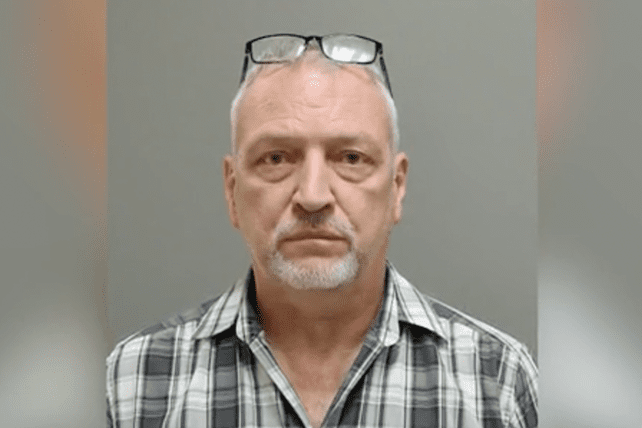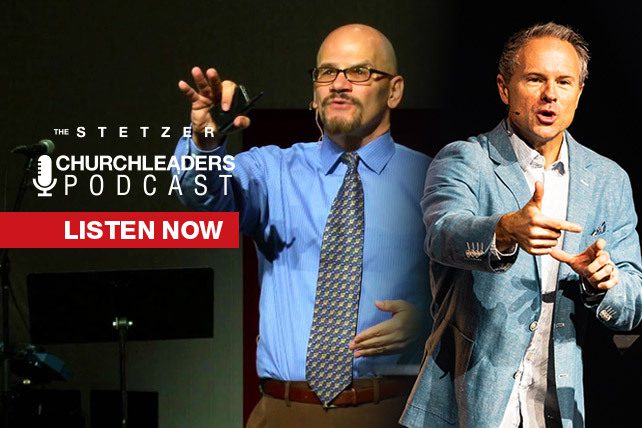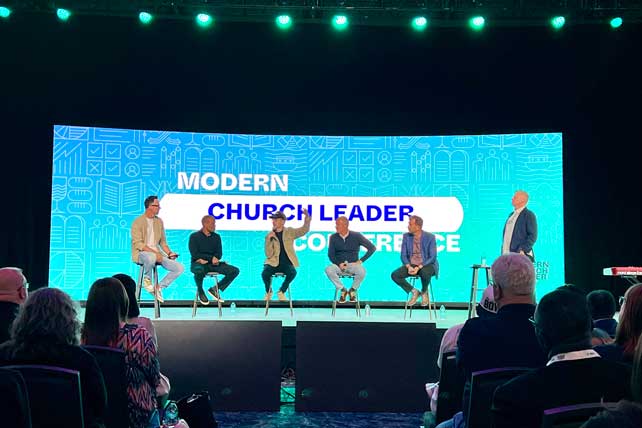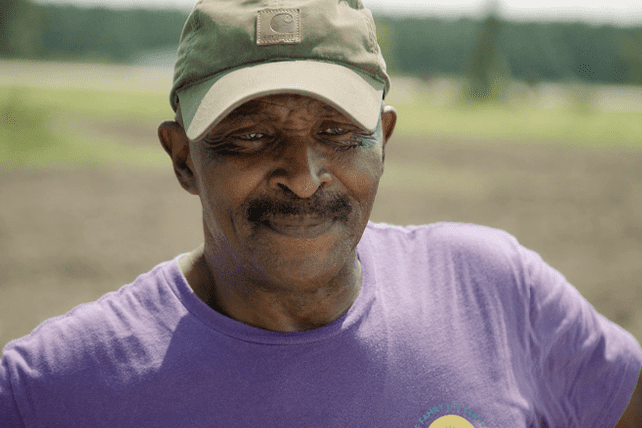Tim Muehlhoff and Sean McDowell on The Stetzer ChurchLeaders Podcast.mp3: this mp3 audio file was automatically transcribed by Sonix with the best speech-to-text algorithms. This transcript may contain errors.
Voice Over:
Welcome to the Stetzer Church Leaders Podcast, conversations with today’s top ministry leaders to help you lead better every day. And now, here are your hosts, Ed Stetzer and Daniel Yang.
Daniel Yang:
Welcome to the Stetzer Church Leaders Podcast, where we’re helping Christian leaders navigate and lead through the cultural issues of our day. My name is Daniel Yang, national director of Churches of Welcome at World Relief. And today we’re talking with doctors Timothy Meyerhoff and Sean McDowell. Tim’s professor of communication at Biola University, where he also co-directs the Winsome Conviction Project. He’s an author, speaker and research consultant, and his books include I Beg to Differ Navigating Difficult Conversations with Truth and Love, and Winsome Conviction Disagreeing Without Dividing the Church. Sean is an associate professor in the Christian Apologetics Program at the Talbot School of Theology at Biola. He’s also a speaker author whose books include Chasing Love Sex, love, and relationships in a Confused Culture and Set adrift, deconstructing what you believe without sinking your faith. Tim Shawn’s new book is End the Stalemate. Move Past Cancel culture to meaningful conversations. If you enjoy our interviews today, make sure you like and follow us on Apple Podcasts. Now let’s go to Ed Stetzer, editor in chief of Outreach Magazine and the Dean of Talbot School of Theology.
Ed Stetzer:
Well, good super to have these gentlemen on. We serve together actually at Biola University, but they’re also writing books that I want you to be hearing about and learning from. So both at Biola University, Tim teaches communications. Shawn McDowell is part of the Talbot School of Theology, where I serve as dean, and Tim is not part of that. So but we still love him just from afar. He’s not far from the kingdom, so we’ll we still like him. So. Okay, so right now we’re just releasing this before the US election and people will probably listen after because it’s a podcast they listen to when they get to it. But man, oh man, you know, and when we’re recording we’re recording this pretty close to the release time, partly because we don’t know what’s going to happen. We could be having like a whole the level of disagreement could turn into a I mean, some, you know, percentage of Americans think there’s a civil war on the horizon and more, uh, the idea of the polarization in our country is all around us. So I’m going to start with you, Tim. How how what’s the way how can Americans handle serious disagreements about different views today? And how does that compare with maybe how it used to be? And tell us a little bit about the cultural moment. Help us know what time it is when it comes to disagreement and how to handle it.
Timothy Muehlhoff:
Well, I would say two things real quick. Really, we’re offering help not to fix the nation, but how to address your church or even your family outside the church, because that’s where we’re going to live with this. Few of us are. Plane flies high enough to fix Capitol Hill. I get asked that question a lot. Editor. Is this a special moment? I would say no. I think we’ve always struggled. We love to share a quote at the Winsome Conviction Project of a pastor who said the church is divided, the city is divided, people are divided. And then I’d love to show it’s Jeremiah Burroughs 1645, which I think is just a great reminder. We’ve always had this kind of tension. I will mention one thing from Arthur C Brooks from Harvard. He said, America doesn’t have an anger problem. We have a contempt problem. And when I asked him what he meant by that, he said, well, listen, anger is we can be mad at each other, but we’re going to hang in there with each other. Contempt is, I’m mad at you and I won’t talk to you anymore. The family would be better off without you. The church would be better off without you. The community would be better off without you. So maybe contempt has filtered in to our disagreements where we’re cutting off relationships, whereas before maybe we hung in there with each other longer.
Ed Stetzer:
Yeah. So a lot of our audience would would certainly relate to this. Over the last 3 or 4 years, people have sorted themselves out of their churches. Many people have sorted themselves to with their churches. They say, well, you know, you know, you didn’t say you didn’t talk about the pandemic or you didn’t talk about, uh, you know, about racial reconciliation or whatever. It must be in the way that I wanted. And so I’m out, and I want to find a church that’s more ideologically aligned where they used to be theologically. But I actually don’t agree with you, Tim. I think we’re in a uniquely tumultuous time, much like the 60s or the early 18, early 1900s. But that’s great because you and Sean don’t agree in the book. And that’s part of what I think makes the book great. Now, again, the title of the book and you can you can pick it up wherever you good books are sold. It’s talking about how we how we actually heal some of this divide that’s at work around us. It’s end the stalemate, and I think you’ll find it helpful. But, Sean, let’s talk a little bit about because you are um, you know, you do these I mean, you have like hundreds of thousands of about 300,000 subscribers to your YouTube channel where you really haven’t engaged in the. I’m mad at everybody. I have contempt at everybody because I will tell you, that’s a good way to build a platform right now. You can monetize grievance today, but you’ve actually hosted conversations with people who disagree with you, people who are somewhat to the left of you and somewhat to the right of you, and then people who are way to the left of you and sometimes way to the right of you. Why have you taken that approach? And because you talk about someone, end the stalemate and why does it matter?
Sean McDowell:
When I started my YouTube channel really intentionally about four years ago, I had a few big YouTubers say something effective to me. You know, Sean, your attempt to be kind and congenial and find common ground and have relationships will not work on this platform. You have to provoke. You have to unsettle. You have to kind of shock people, so to speak. And I just remember having two thoughts. First off, I thought, you know, not not just what we communicate but how we communicate. What does it mean to communicate as a Christian? And I wonder if we lose something when we just play the same game everybody else is playing? That was one. Second, I thought, I don’t know if that’s true. I think there’s a lot of people who are hungry for healthy, meaningful, respectful dialogues now. My channel could be a lot bigger. If I was shocking this and insulting that person, I could make more money. I mean, of course, but I get tons of email from people that are like, thank you for sitting down with that progressive Christian and talking about your differences. Respectfully, thanks for having that atheist on and debating issues, but doing it in a way that you found common ground and it was respectful. So I want to make a difference not only in what I do, but in how I do it. And I guess that’s just what I feel. God’s calling is on my life. And I think what’s needed now. So I kind of would if I had to take sides. I probably agree more with you, editor on the cultural moment that there’s always been division, like Tim pointed out, but not everybody had a platform like in the past. And we’re also seeing mental health issues go up. People are more broken relationally, so I do think it’s poisoned the communication climate more so today. So are we Christians known by our love? That’s my question.
Ed Stetzer:
Yeah. And I think I think that, you know, in 2024, there is an increasing pushback on the idea of being winsome as a way to engage culture. And I call it the war on winsome. And, you know, and it’s basically saying that the world has changed so much that now we got a, I don’t know, people use different words. I don’t want to caricature what people are saying, but we got to fight or stand differently or engage differently. And I actually first of all, I think that is a bit narrow in its understanding because I think New York City, where Tim Keller was, where he sometimes, you know, part of the example people use in the war on Winsome is very different than where I lived in Tennessee before I moved to Chicago, which is very different than where I live in the Los Angeles area. So. So I just wonder, I’ll go first back to Sean and then go just to Tim. You just jumped right in after Tim is is do you see a call to being winsome and add to it? Has that changed in the last few decades in ways that we need to maybe lower the winsome and raise the courage? What would you describe about these things? Start with you, Sean.
Sean McDowell:
I think we’ve always needed a gentle, kind voice, and we’ve always needed a prophetic voice. It’s not one or the other. It’s both. So in part, what Tim and I are talking about is not a legal strategy. We’re not talking about really a larger 30,000 foot cultural engagement. But how do we engage our neighbors? How do we engage our coworkers? I think most people want to have meaningful spiritual conversations on the issues that matter. If we do it in a way, in the right time and the right place, and respectfully. So, I don’t know, I think there’s a need for prophetic voices today. I mean, Elijah mocked the prophets of Baal, and there are some issues today and ideas that Christians need to stand up and say no and fight for it. And we need to have many people with a kind civil voice. It’s not one or the other, it’s knowing our lane, I think, and doing it well. But as a whole, I think to answer your question, do I think we’re doing better at crying out from a prophetic voice or loving our neighbors? I think if I had to assess it, we’re doing less good, for lack of a better way to frame this at just loving and showing civility than the opposite.
Timothy Muehlhoff:
Yeah. And I would just say what Peter says right in his traveling letter. And this is right before as.
Ed Stetzer:
Well, is this Peter, the guy from the Bible? Because I know you’re in the communication school.
Timothy Muehlhoff:
Peter, the guy from the Bible. Right. Just checking. Yeah. In first Peter chapter three, uh, he says, listen, when insulted, I want you to give a blessing. And he even comes out and says, I do not want you to give an insult for an insult. And then all of us love apologetics, all three of us. And Peter says, listen, be ready to give a reason for the hope that is in you, but do it with all gentleness and reverence. Some translations say so, I don’t think. I don’t think we can opt out of gentleness. I would even say if we use the prophetic voice, what will set us apart will be a gentleness that is even in the prophetic voice. Um, I think we have to ask the question today what makes us distinctly different as Christian communicators in today’s argument culture?
Ed Stetzer:
I love that, and I want to go back to you, Tim, because I partly we had a faculty forum, um, with you and John just, I don’t know, yesterday and, and I thought it was really helpful because it kind of framed some of the conversations that we have. And you framed some of this around communication theory and sort of some of the approach that we’ve almost de-evolved into as a culture today. Because I will tell you, you know, we started a minute ago, we talked about how, you know, Sean would have a lot more subscribers if he was buying into the outrage culture. I wrote a whole book on on outreach, so I get it. And contempt, by the way, is a chapter in my book, so I’m with you on that. But you also in that forum, I don’t remember if it was yesterday or not. Whenever it was, you also sort of explained some communication sort of dead ends we’re getting into. So take us, take us to a little academic level and explain a little bit of that might help us to think differently about how to communicate today.
Timothy Muehlhoff:
Yeah. We actually start off for a book with Sean talking about the perfect storm that led us today to what Deborah Tannen calls the argument culture. I would say we’ve always had two definitions of communication. One is what we call the transmission view. That’s because of the enlightenment. We tend to think when we’re in a disagreement. The best thing I can do is bring out the facts, my experts, the studies that support my perspective. And again we’re not anti transmission view. We definitely want to transmit the gospel. Paul says knowing the fear of the Lord we seek to persuade men. But the ritual view far predates the transmission view and that is the sense of connection, community commonality, common rituals. And I think today, Ed, that we’re not getting rid of the transmission view, but I think we need to lead with the ritual, and that is to fight through the rancor and say, where are our points of commonality? And I think I mentioned in that forum something called myside bias, right? Which is a psychological expression that says I’m insulated against other perspectives. I mean, I hang out with people who think like I do. I visit websites that support my view, the chance of the transmission view getting through without this commonality, to get a person to break out of their cocoon, I think from a communication standpoint is going to be very difficult the more we fall into what they call tribalism. Today I hang out with my tribe, I listen to my news sources, and so we’re going to have to find a way to get in past those biases, to get people to listen to our perspective.
Ed Stetzer:
Yeah. But the the other perspective that you’re, you know, you’re talking about my side bias. I mean, the other side, they’re terrible. Like they want to they want to mutilate kids. They want to, uh, you know, uh, abortion on demand up to the moment of birth. Um, the other side’s terrible. They they don’t value the rule of law. They hate immigrants, and they hate refugees. Um. Uh, so so, I mean, you get my point. Is that right? I mean, the perception. So. So why would I want to build a relationship with someone who I think holds deeply unbiblical values, or is being fooled or locked into their own foolishness? So go to Tim and then go to Sean.
Timothy Muehlhoff:
Well, I think we’re called to do that. Editor. I mean, I think we’re called with the Great Commission that we are to take this gospel to everybody and particularly to the people.
Ed Stetzer:
But I but, Tim, I wanted to push on you. I’ll go tell them the gospel. But you want me to sit down with them and communicate with them, with people who have just evil views. And people would say that about all kinds of different political people’s political persuasions. So. So why am I going to do that? I’ll go. I’ll sit down with them and share the gospel. But I got to listen to their foolishness before I do.
Timothy Muehlhoff:
So here’s what I would say. I did all my graduate education at UNC Chapel Hill where honestly, Ed, they viewed me that way. They viewed my views as you are homophobic, you promote hate, you’re, um, you don’t care about the marginalized. You don’t care about women’s rights. So if we get to this stalemate and again, that’s the name of the book is end. The stalemate is I need to know that the way that I view them, they view me. And yet I’m called to speak the truth and love. I’m called to pursue. People like Christ pursued us. Remember what Paul says in Romans while you were enemies, while you were at your worst? Paul says, God pursued you. I think we pursue individuals that are far from the kingdom, and part of that is going to have to be the relational. I think it’s going to have to be the relational. And I think that’s the starting point is don’t demonize, humanize.
Ed Stetzer:
Yeah. Sean, I want to hear you weigh in, because you model this in some ways. But I will say to you that, Tim, that sounds like a really sweet idea until you do it. And what happens is, because I did that in where I last lived, our congressman was one of the most liberal members of Congress, part of the secular Democrats in America wanted to defund things that would help, you know, Wheaton College and everything else. And we befriended each other. And and he had experienced a tragedy in his family. I reached out during that. We ended up doing a Facebook Live together. And very if you watch the Facebook Live, it was very clear. I think we will find it that I deeply differ on so many issues and just the fact that I did that Facebook Live with him and he did that Facebook Live with me, got people outraged on both of our constituents. So so so so. Sean I wonder, Sean, I mean, I imagine that you’re not making everybody happy with some of the people that you talk to. I’d love to see your texts sometimes. Why are you talking to that person? So so now part of it is you’re doing it on a YouTube channel, and that’s a public platform. And people want to be on that public platform. But why is that important to you to take that approach?
Sean McDowell:
I think a few things. Number one, if we actually want to persuade people, we have to know what people believe and why they believe it. And I think on both sides we have caricatures and simplistic views of the other side. We don’t steelman the other position. And I consistently hear I mean, I read the New York Times all the time and I’m like, that is not what conservatives believe. It just feels like constantly one sided misrepresent. Well, no one likes to be misrepresented. Well, we shouldn’t do that to other people as much as we don’t want other people to do that to us. So if I want to persuade somebody, I’m in the best position. If I know them and I build bridges and they trust me, rather than just dropping the gospel and bailing. I’m not saying there’s not a time to share the gospel with somebody and transmit it. Of course there’s a time to do that, but I don’t know what person believes why they believe it. Proverbs 25 says, the purposes in a man’s heart are deep, and a person of wisdom draws it out. So you mentioned issues earlier, whether it’s immigration or the transgender topic or whatever heated sport it is, there’s oftentimes a backstory there of why somebody holds that view. And then when we get to that backstory, you know what the real motivation is, and then you can start talking and ministering to the person. That’s what one thing that I think the power of relationships does, you.
Ed Stetzer:
Know, the challenge is, is that you are talking to people who hold views that that it is a because we’re releasing this intentionally right around the election. There is a incentive to to caricature other people. And if you don’t join in that caricature with other people, you’re then on the outgroup and sort of pushed out of that. So I happen to know, for example, one, I someone who’s running for Congress and I really, um, you know, good loves, loves the Lord. Et cetera. Et cetera. And then I watched the ads about that person. And, you know, they’re all like, just really, like, don’t recognize that person at all. But if you were on the opposite party of my friend and you said, you know, that’s not really what he’s like, you’re the bad guy and vice versa. So, so, so I mean, are you going to say, Sean, um, when you talk to somebody who differs with, you know, we have a pro-life position here at Biola University, you’re going to are you going to sit down and talk with someone who is advocating for, you know, whatever it may be, you know, abortion available up till whatever point that you would find uncomfortable with. Are you going to sit down with them and talk to them, or reason with them, or try to understand what they think or, and actually maybe even articulate their view to somebody else? Or is it this needs to be condemned. We’re in an election and we need to do this.
Sean McDowell:
I don’t know that it’s one or the other. I do YouTube videos. I do social media shorts where I answer objections, I advance my case, and I’ve done this. I’ve written stuff on it, I’ve had conversations with people. I’m publicly advancing ideas that are good, but I’m also willing to sit down with most people who want to have a conversation in good faith and talk with them. Now, of all issues, hands down, and abortion is the hardest one. Totally. For two reasons. I don’t think most pro-choicers have really thought through what is the pro-life case, and given that the most vulnerable segment of society is at stake and their lives, that is so Inexcusable to me.
Ed Stetzer:
The Setzer Church Leaders Podcast is part of the Church Leaders Podcast Network, which is dedicated to resourcing church leaders in order to help them face the complexities of ministry today. The Church Leaders Podcast Network supports pastors and ministry leaders by challenging assumptions, by providing insights and offering practical advice and solutions and steps that will help church leaders navigate the variety of cultures and contexts that we’re serving in. Learn more at Church leaders.com/podcast network.
Sean McDowell:
And it’s a failure to protect the most vulnerable amongst us. So that one is really, really hard for me. Editor of all the issues, hands down. But I’m telling you, there’s a lot of people that are pro-choice who have an experience with this and a relationship and deep hurt. And if I can get through the head to the mind and start ministering to that person, I’m telling you, I’ve seen it happen where there can be powerful change. Not always, but that’s the kind of conversation I want to have if they’re open and willing to do so.
Ed Stetzer:
Yeah. So let’s go, Tim, let’s talk a little bit about issues of gender and sexuality, because I would say that that if abortion is number one, certainly gender and sexuality going to be up there too. And, you know, a lot of times the the arguments around abortion are framed as, um, you know, bodily autonomy and justice for women. And the arguments around the pro-life arguments are that, you know, that life and bodily autonomy, you know, and for a child that you know, that this is a child who exists as a human person. And when you have stuff like that, justice issues become very challenging. So when it comes to questions of sexuality, let’s talk about homosexuality for just a second. Um, so on the side that is, um, you know, the advancing the rights of LGBTQ persons, they would say that it’s a justice issue. You can’t I mean, this is the person’s true self if they’re gender transitioning. I said, we talk about homosexuals. I’m talking about transgenderism. But this is the person’s true self, or love is love. Why would we deny somebody the privilege, the opportunity to love somebody else? So that’s a justice issue. And then you come over to the other side. For us, it’s not just as more of like, well, this is a scriptural authority issue for us. And we could also say a natural theology issue for us as well. So when you end the stalemate that divide like those are big, like I can disagree with somebody on tax policy and it’s not the same thing if you’re, you know, you could hear people say, this is a matter of life and death for the transgender community. So so if that’s the case and you’re beginning with justice and fear of the future, and then on the other side, maybe it’s scriptural authority and, you know, and God’s created design. How do you end the stalemate and bridge that gap?
Timothy Muehlhoff:
Well, wow. Let me share a story that maybe will get at what you’re asking. Ed. So I go to this interfaith conference and I’m wearing my lanyard, and they actually spell out Biola. Usually they don’t. This time they did. So it’s the Bible Institute of Los Angeles. We’re doing these speed conversations which are like five minute conversations. A guy sits down in front of me. He looks at my lanyard and he goes, and he says, I’m tempted not even to talk to you. I was like, what? How weird to be at an interfaith dialogue and you’re not going to talk to me. I said, why? He goes, my six year old daughter is transitioning, and I already know what you think about it. And he listed doggone if he didn’t list my three main objections. So I just looked at him and I said, you know what? And again, my mind is reeling. I mean, now we’re down to three minutes. We’re down to 2.5 minutes. So I just looked at this person and I said, listen, from one father to another, I believe that you’re loving your daughter and you are trying to do what you think is best. And now the time is up. So I handed him my card. I said, listen, there’s no way we can talk about this in five minutes. Send me an email if you want to continue the conversation.
Timothy Muehlhoff:
Session at five months went by. Never heard from him. Then all of a sudden I get an email saying, you know, I was shocked that a Biola professor would one affirm my love for my daughter and offer to talk more? Five months. It’s taken me five months to do this email. I’m ready to talk. And we have been in a three month conversation now, including his wife. So here’s what I would say to people listening. The book isn’t about starting a YouTube channel. Sean’s amazing. It’s not about fighting this on Capitol Hill. This book really is about you and a family member, right? It’s about you and a church member. And I would I’d go back to what I said. My humanizing that person sitting in front of me opened the door that he reached out to me months later, and now we’re actually having a conversation where we’re getting to my objections. But now we’ve created the relational work that he can receive my objections. So again, this book is meant for one on one conversations within the church and with neighbors. Because if we if we talk about the political movement of the transgender movement, my goodness, we’re flying at a pretty high altitude. This is really meant for how do people talk interpersonally?
Ed Stetzer:
And the book is Rhonda. It’s called End the Stalemate. Move past cancel cancel culture to meaningful conversations. And the key there is meaningful conversations. And my family’s pretty divided on this. My family doesn’t all share the same faith. They certainly don’t all share the same political affiliations like my. My parents have very different views on this, and I differ from all of them, parents and stepparents and all that sort of stuff. So, so this is very personal for me. I think it deeply matters. And we’ve sort of navigated a place where we can talk about things, but we also say, you know, we’re not going to change each other’s minds. So let’s have Thanksgiving dinner. So, so, so how do you like how much of this like, you want to end the stalemate in some way? You end stalemate is saying, okay, you know, we’re just going to agree to disagree. But simultaneously There are parts that you don’t want to do that on. So. So Sean, how would you kind of do that relationally?
Sean McDowell:
Well, family is different. I mean, relationship with someone sitting by on the plane versus somebody in my neighborhood versus in family or different elements. So I’ve got plenty of my wife’s dad is one of 12. So family meetings are like massive. And there’s people all over the political aisle, Christian, non-Christian, everywhere in between. And I want them to not think, oh, here comes Sean. He’s going to talk about Jesus every single time, of course. So in family, I’m playing the longer game and really valuing relationship and just trying to love my wife, who’s biologically from their family in a way that they respect. Look for conversations just strategically and naturally with people willing to have them, and then just hoping when family members get to a certain point in their life where they’re more open, they would want to come to me. And I’ve had that happen a few times. Family members I never would have expected are like, I watch your stuff and I’m struggling with this, can you help me? I’m like, of course. So that kind of relationship, I think in family is how I try to weigh that. But one area Tim and I have gone back on is when it’s all said and done. Staying in relationship with somebody is not the most important objective good. At some point we do have to speak truth, and we do have to speak the gospel and live consistently with our convictions, even if it costs us a relationship. We just need wisdom to navigate when that is the case and not the case.
Ed Stetzer:
Yeah. And I think that’s I mean, to be honest, that’s kind of the whole ball of wax here is like, because if you’re always debating and arguing every issue, you don’t have any relationship. But if all of you have a relationship, you never speak truth. This is kind of where that that, I mean, the challenges come before us. And it seems that, you know, and I don’t know that we’re in a time that’s more truth or more grace. I just think right now it depends on who you talk to. Like, so how do we get those things? So Tim, if people were to read and the stalemate and put some of those things into practice, how would. And let me let me make it a little narrower. We’re pastors and church leaders. So there’s probably not the local baseball coach unless unless his pastor or church leader’s baseball coach. So for pastors and church leaders who really have felt the last few years, I mean, they’ve lost people because they said the they said something like one sentence the wrong way. People are mad, people are furious. People in the neighborhood. And the culture is increasingly post-Christian. So what things do pastors and church leaders need to think about for ending the stalemate with maybe people of different views in their church or their community, and take a little time on that, because there’s two, two sections in the church and in the community.
Timothy Muehlhoff:
Boy, I would say. Editor. The great thing about the ritual view, it’s called the ritual view because of common rituals that we tend to do as Americans, as community members. Well, the church is perfectly set up for this. John Calvin said that every time the church opens its doors, we should have Holy Communion. He really believed that conversations would go better when you had just gone through taking communion. So I would say as a pastor, I would really focus on those common rituals like really highlight what Jesus meant with very diverse disciples. He broke bread and, uh, instituted the communion. I would really form those rituals that bring us together, especially heading into a political season. Then I would say, uh, engage, learn to do perspective taking, which we define as set aside your views just long enough to step into the views of another person. And with the book, we created a website called End the stalemate.com. Totally free. Don’t need to buy the book to go there, but it’s going to teach you how to address your heart as you head into a conversation. And then we’re actually going to introduce you to views that some of them might be hard for you to step into, but we’re asking you just to do perspective taking, not condone a view. And I think that’s a muscle. We really need to start growing more as we become more divisive.
Ed Stetzer:
Okay. But so perspective to come back to that as well. Explain a little more what you mean.
Timothy Muehlhoff:
So Hebrews, the writer of Hebrews says right in chapter four, I don’t want you just to pray for people in prison. I want you to imagine you’re in prison, that the pain that they’re feeling, you’re in fact feeling yourself. And I think we take that same attitude with people that are different, right? Like, like go to my, um, situation with that person at the interfaith conference. Right. I’m stepping into his perspective with a child who feels like God made a mistake making him making her a her who wants to be a boy. Now, listen, I just I disagree with that fundamentally, but what must it feel like to be a parent? To watch your child cry themselves? To sleep every night. So to step into that perspective and see the world and, and I would say and not just understand it intellectually, feel that emotionally. And then you understand that when I speak to these parents, I need to match their emotion. Even as I offer perspective, they might find really challenging challenges.
Ed Stetzer:
Now we got a wing of people saying empathy is bad and empathy can be weaponized and we can end up with, you have to do this because there’s feelings that drive that, empathy that, drive that, and more so. So Sean, over to you. And we’re kind of getting near the end of the interview. But but so so I want to, you know, what I want to say to Christians, pastors are listening is that there is a pastoral approach to things, and a pastoral approach to things almost always includes some of what Tim just included. You’ve got a you’ve got to empathize with the people, walk the journey with them. And that’s why pastors tend to stay less foolish things online. They tend to. I’m not saying all pastors, but pastors. Like if I say something stupid, if I poke someone in this way, there are probably people in my church. So we’re talking about people. We’re talking about people in our church, and it causes them, I think, to respond, I think, more wisely. But I think a lot of people are trying to find out what’s that balance when that grace and that truth. And how do you find that balance? So so, Sean, you’re a you’re an apologist. You’re a professor at Talbot, but you also have a love for the church. So what advice would you give to pastors and church leaders? Actually, we’re going to be doing a pastor’s conference together, you and I. The first Talbot Pastor’s Conference with partnership with CLA. We’re excited about that. So what would you say to pastors? Here’s how you end the stalemate. Build those bridges. Grace and truth. As a pastor and church leader.
Sean McDowell:
I think one encouragement would be is that we all need to live in the tension of grace and truth. If you’re not living in that tension, either you’re speaking too much truth without love, or you’re kind of compromising the truth and speaking in a way that our culture defines as love. Now, for me, I need a range of voices around me to say, you know what, Sean? You should have spoken truth more clearly here. Or occasionally like, you know, you could have said that a little bit more graciously. Like, I need voices. Pastors need voices. People they invite into their life. Because one thing I know in a church is the pace is set from the top down. And I love my home church. I live in southern Orange County and my pastor, one of my favorite things is he speaks truth and doesn’t mince it. But with such kindness and such graciousness towards people who see the world differently and so live in that tension, model it from the pulpit on the way down. But then I also think one of the reasons we’re in this storm of divisiveness is we’ve actually just lost how to communicate well.
Sean McDowell:
We’ve lost how to listen. We’ve you’ve lost how to ask good questions. We’ve lost how to perspective. Take a lot of the conflict is just simply people not really thinking through them. And I had a class recently ended kind of weekend class and had a student respond, oh, you were there, Tim. This involved you. Yeah. And so we had a debate where he and I were different on an issue, and we took questions from the students. And one of the students said something and just framed Tim’s argument in kind of the worst way conceivable. And we just gently called him and said, okay, let’s think about how this lands. When you compare his position to somebody who’s like, accountable. Like, does that make you want to listen? Or does that shut down the conversation? And he apologized and I came back and said, okay, your question is good. I want you to re-ask it in a way where the truth lands, but it’s going to be received better. And he did. So we’ve just got to train people how to communicate better. I think most people really want to do it when we show them how.
Ed Stetzer:
I love the fact that we make fun of Tim because he’s at the communications department, but I love the fact that a communications professor and an apologetics professor, because I got to tell you, that’s such a beautiful picture. I mean, again, apologetics, communication, cultural apologetics. You do a lot of cultural apologetics on. I mean, it’s a it’s a beautiful picture. And I do and he knows who that that he said the writer of Hebrews, because he knows we don’t know who that is. And he’s he quotes Bible verses. He knows who Peter is. So I just want to back it up. One of the things is the robust faith integration at Biola University we love. But anyway, super conversation and super helpful. Like so people are going right into the election right now. So I just want encourage the pastors and church leaders who are listening. We get it, I think I think in Ed’s view, most pastors did better in 2024 than they did in 2020 because they kind of learned some of the places how to communicate better and more and probably better in 2016. But there’s still much to learn. I would encourage you to get the book and the stalemate. I think it will help you on that journey. And of course, listening to Tim and Shawn is always good wisdom. Again it’s end the stalemate. Move past. Cancel culture. Cancel culture to meaningful conversations.
Daniel Yang:
We’ve been talking to doctors Timothy Meyerhoff and Sean McDowell. Be sure to check out their new book, End the Stalemate. Move Past Cancel Culture to Meaningful Conversations. You can learn more about Tim at Tim meyerhoff.com, and more about Sean at Sean mcdowell.org. And thanks again for listening to this Church Leaders podcast. You can find more interviews, as well as other great content from ministry leaders at Church leaders.com/podcast. And again, if you found our conversation today helpful, love for you to take a few moments to leave us a review that will help other ministry leaders find us and benefit from our content. Thanks for listening. We’ll see you in the next episode.
Voice Over:
You’ve been listening to the Stetzer Church Leaders podcast for more great interviews as well as articles, videos, and free resources, visit our website at Church leaders.com. Thanks for listening.
Sonix has many features that you’d love including secure transcription and file storage, collaboration tools, powerful integrations and APIs, automatic transcription software, and easily transcribe your Zoom meetings. Try Sonix for free today.
 In the pursuit of effective discipleship within Christian ministry, the Neuroscience Informed Relational Discipleship principle of “Tell-Show-Help-Watch” emerges as a transformative approach that bridges the gap between cognitive understanding and relational experiences. This model not only aligns with but also deeply integrates psychological insights with spiritual formation, emphasizing the necessity of whole-brain integration for lasting character change and spiritual growth.
In the pursuit of effective discipleship within Christian ministry, the Neuroscience Informed Relational Discipleship principle of “Tell-Show-Help-Watch” emerges as a transformative approach that bridges the gap between cognitive understanding and relational experiences. This model not only aligns with but also deeply integrates psychological insights with spiritual formation, emphasizing the necessity of whole-brain integration for lasting character change and spiritual growth.


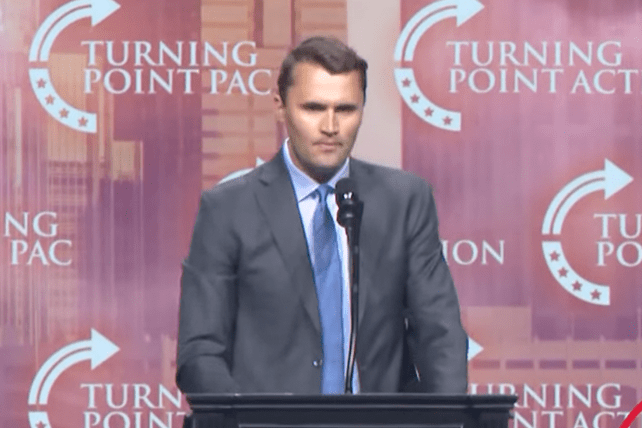

 As pastors and ministry leaders, why is it often easier for us to preach and teach about the concept of grace than it is to live in the fullness of God’s grace? In this week’s conversation on FrontStage BackStage, host Jason Daye is joined by Joby Martin. Joby is the founder and lead pastor of The Church of Eleven22 in Jacksonville, Florida. His most recent book is titled, “Run Over by the Grace Train.” Together, Joby and Jason look at some of the challenges we have as ministry leaders when it comes to experiencing God’s grace. They look at issues such as comparison traps, performance mentality, and others that often trip us up. Joby also shares some biblical insights and some ideas and practices that can help us truly experience the fullness of living in Christ as we serve his church.
As pastors and ministry leaders, why is it often easier for us to preach and teach about the concept of grace than it is to live in the fullness of God’s grace? In this week’s conversation on FrontStage BackStage, host Jason Daye is joined by Joby Martin. Joby is the founder and lead pastor of The Church of Eleven22 in Jacksonville, Florida. His most recent book is titled, “Run Over by the Grace Train.” Together, Joby and Jason look at some of the challenges we have as ministry leaders when it comes to experiencing God’s grace. They look at issues such as comparison traps, performance mentality, and others that often trip us up. Joby also shares some biblical insights and some ideas and practices that can help us truly experience the fullness of living in Christ as we serve his church.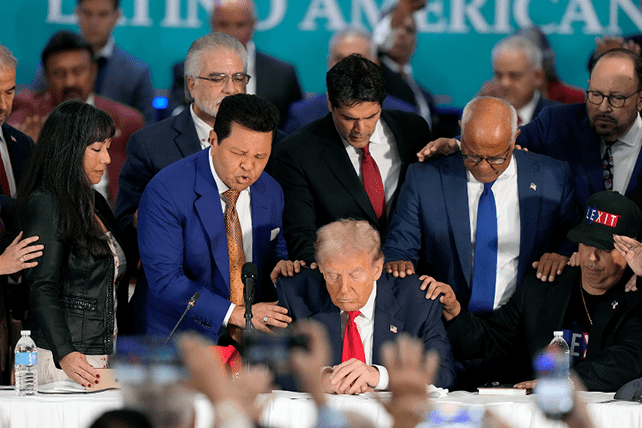
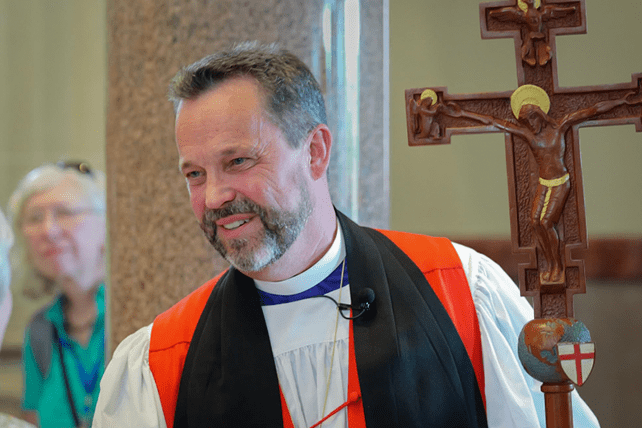



 Researchers observe that hope is active, not passive. How would you describe your interaction with
Researchers observe that hope is active, not passive. How would you describe your interaction with 

